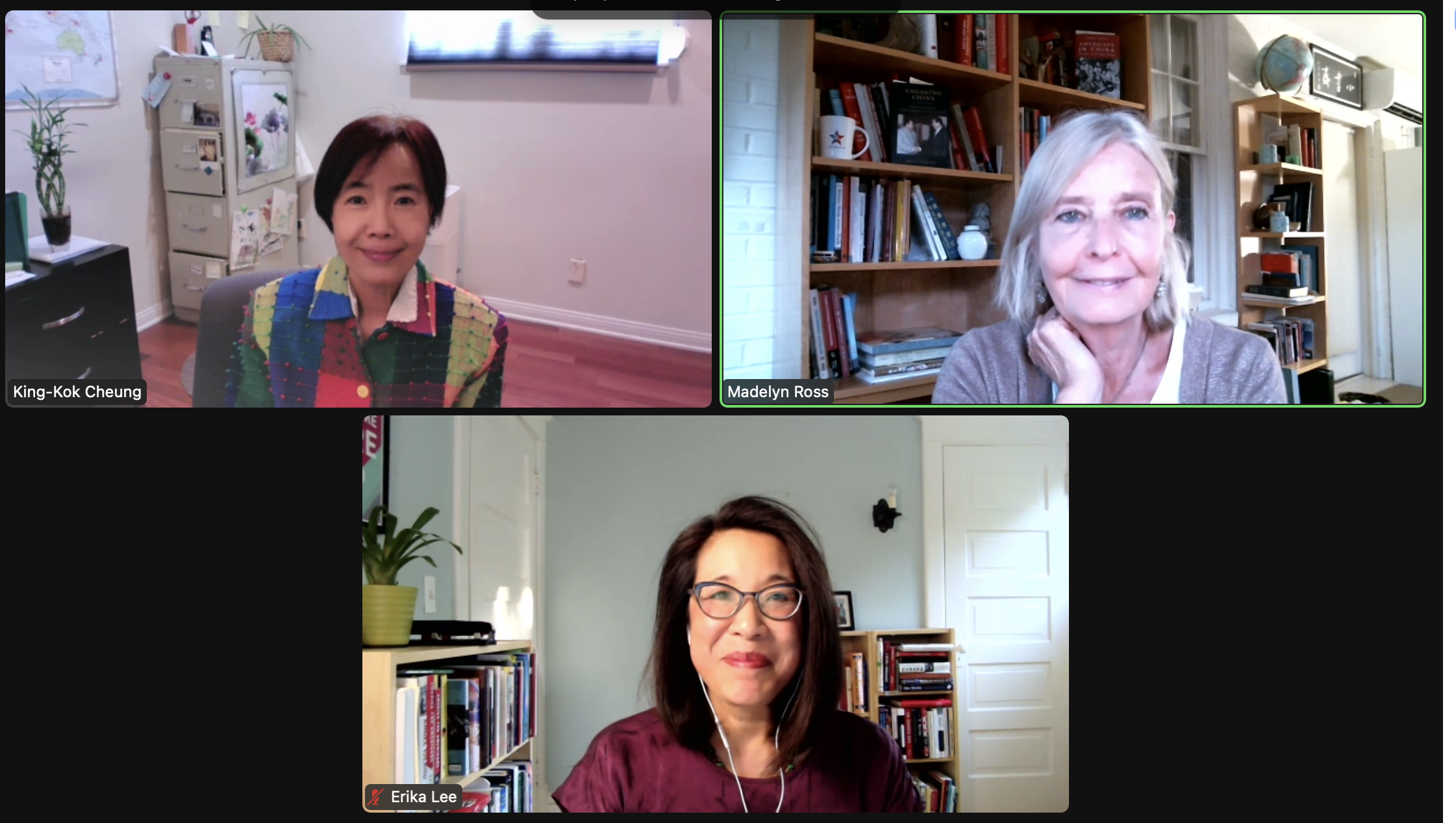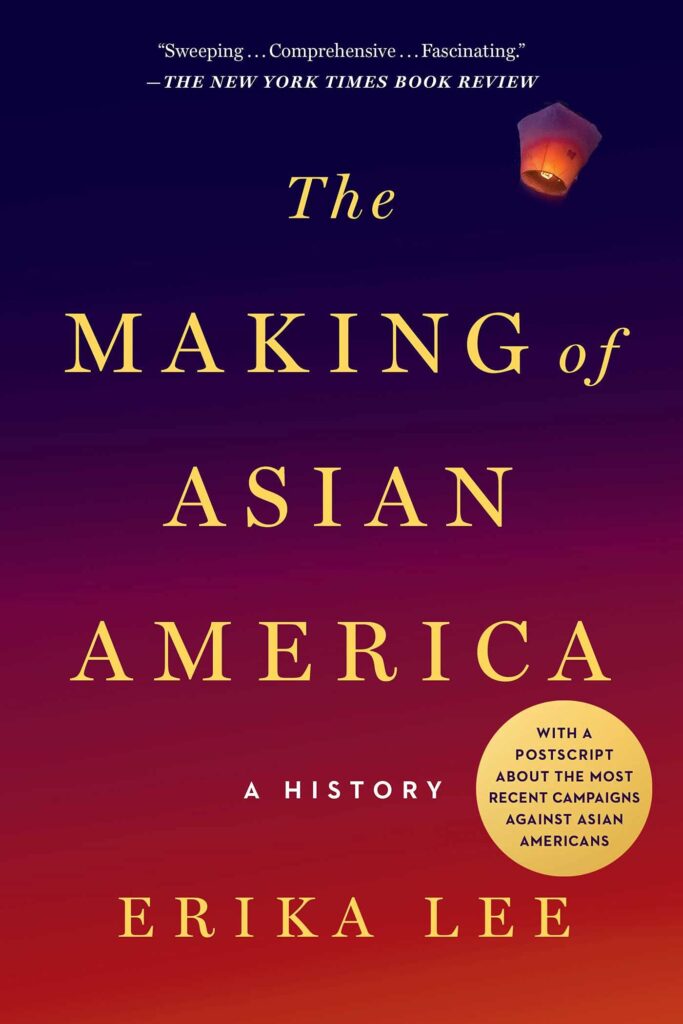
On the evening of June 15th, 2022, USCET hosted its second virtual Asian American Authors Book Club meeting. The meeting featured Dr. Erika Lee, professor of American History and Director of the Immigration History Research Center at the University of Minnesota. Professor King-Kok Cheung, USCET’s Special Advisor for Asian American Literature and Professor of English and Asian American Studies at UCLA, moderated the discussion. More than 100 members of the Asian American Authors Book Club representing 36 different colleges and universities were in attendance; most of them teachers and students learning about America and Asian American history at universities across China.

Dr. Lee led a vibrant discussion of her 2015 book The Making of Asian America, which covers Asian American history from the country’s earliest Asian immigrants to 2015. The book was recently republished with a new postscript on “Asian Americans’ Racial Reckoning.” According to Dr. Lee, her belief that each generation plays an integral role in “marking and commemorating” history led her to re-publish her award-winning book with this postscript on Asian American activism during the COVID-19 pandemic. This recent activism was also the focus of the Book Club discussion. Dr. Lee recalled the start of the pandemic in 2020, when she discovered a rise in “anti-Asian rhetoric” around the world. As a historian much too familiar with the historic pattern of racial discrimination in America, Professor Lee was fully aware that anti-Asian rhetoric has recurred at different periods in the country’s history. She was therefore not surprised when, not long after the pandemic began in 2020, along with the rampantly growing cases of COVID-19 in the United States, came a new wave of harassment and abuse against Asian Americans.
The Asian American community was quick to respond. Dr. Lee introduced the audience to a non-profit organization founded during the pandemic named “Stop AAPI Hate,” which collects testimonials from Asian Americans reporting hate incidents. On the organization’s website, we were able to see over six thousand cases posted since the pandemic started. Additionally, Dr. Lee pointed out that anti-Asian hate should not be viewed separately from the racial conflicts at large in the United States, but instead as a byproduct of systemic racism. The actions of the xenophobic and anti-immigrant Trump administration served to normalize and popularize racist labels, leading to a rise in racial discrimination targeting not only Asian Americans, but every minority group including Latino and African American communities. Erika Lee testified in front of the Congress herself on these issues in March 2021.
Despite the hardships that the Asian American community has faced, Dr. Lee ended the meeting on a positive note, informing the audience of efforts to pass legislation and bolster education countering anti-Asian racial discrimination. The US Congress, for instance, has recently addressed the Asian Hate problem for the second time in American history, passing the COVID-19 Hate Crimes Act in 2021. Numerous anti-hate advocacy organizations have been established during the pandemic. And some background on Asian-American history, the importance of which has been neglected or denied for many years, has recently been included in secondary school textbooks in a few states. Indeed, as Dr. Lee stated in the beginning of the meeting, we, as the spectators of history, are also little-by-little making history.
